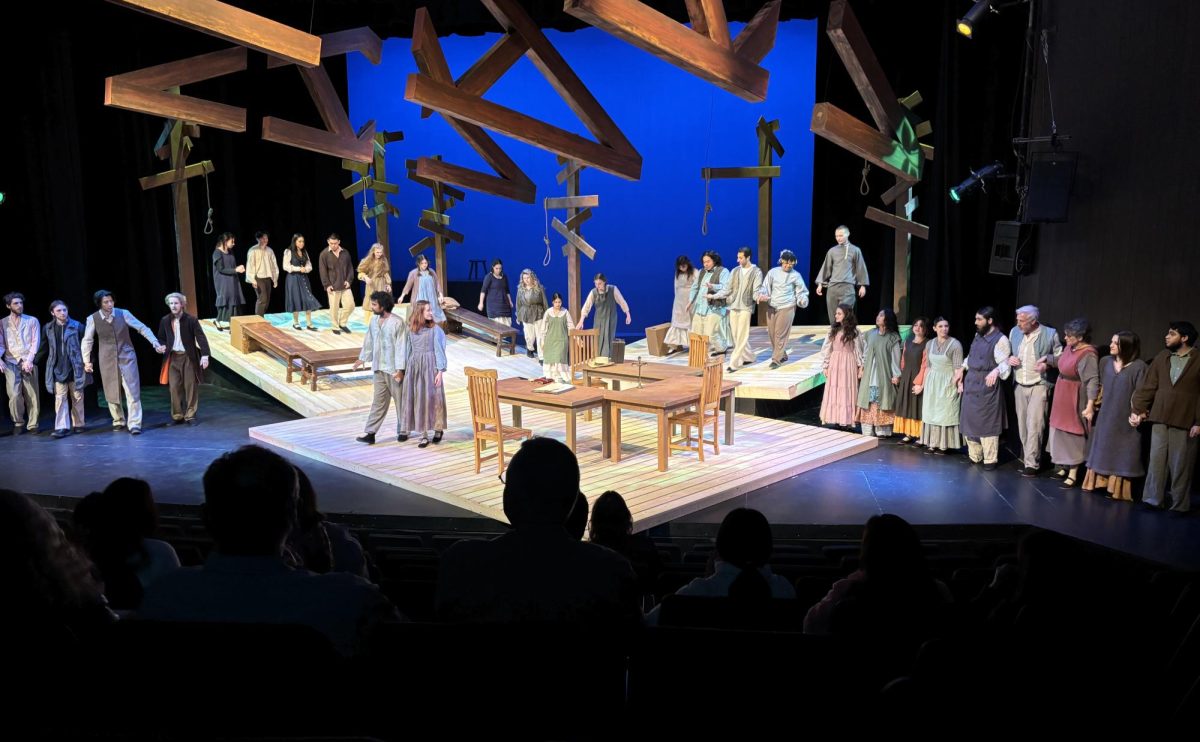“Any Extra Notes Go A Long Way”: Student Note Takers Help Classmates Succeed
November 9, 2021
Taking notes likely isn’t the most thrilling aspect of a college education. Most students simply take notes as required. Others take them for their own use, while some disregard them entirely. But instead of merely recording notes to earn points for assignments, what if your note taking skills could also help others in the process?
Unknown to many students at Diablo Valley College, official note taking support is being offered through the school’s Disability Support Services (DSS) department. Note takers are student volunteers tasked with taking notes on all verbal components in a class – including in-person lectures, videos, or other online recordings.
According to counselor and former DSS supervisor Terry Armstrong, these services were originally mandated as part of the Rehabilitation Act of 1973. The last time The Inquirer covered the service was in 2010, and its demand has sharply increased in the decade since.
More recently, the note taking program was streamlined during the pandemic, allowing DSS to run the entire process online. As a result, no in-person meetings are required to serve as a notetaker.
While innovations such as the Echo Smartpen and other notetaking-related software are available, student volunteers are still the most commonly requested option at DVC.
In exchange for providing notes in a course, student volunteers are compensated with their choice of early course registration for the following term, or a volunteerism certificate showing 20 hours of service. Certain instructors also offer extra credit for this type of volunteer work.
Jonathan Cattarin, the Note Taking Services coordinator for DSS, wrote in an email to The Inquirer that “the need for note takers has dropped but only slightly since the pandemic began.”
Before COVID-19, he said, the school would receive on average around 500 requests per semester for note taking services. Since March 2020, those numbers have fallen slightly.
Accompanying the decline in note taking requests has been a steep drop in the number of volunteers. Cattarin said he believes this is mainly due to a “lack of understanding of what notes could be needed in an online/asynchronous class.”
In terms of the job, an average schedule for a note taker parallels the student for whom they’re recording notes. Note takers are expected to attend class, document all the material that is required, then share their completed notes via email with both DVC’s Note Taking Services and the DSS student they’ve been assigned to.
The course subjects receiving requests for note takers are as diverse as the classes offered at DVC. Cattarin said that DSS handles note taking services for courses across the board, with particular demand showing up in English, Math, Chemistry, Physics, Health Sciences, Addiction Studies, Culinary Arts, and foreign languages.
He added that “this variety (of courses requested) goes to show that disabilities are not as narrow of a concept as was once believed.”
DSS emphasizes the consistency provided by note takers, and administrators keep in constant touch with all of their volunteers. If note takers submit work too late to be helpful, DSS will intervene, releasing the note taker in question and finding a suitable replacement, Cattarin said.
He added that there is no test, requisite skill set, or other experience necessary to become a note taker. The vast majority of volunteers have little experience other than taking notes for their own use. Cattarin said he believes many students “choose not to volunteer because of some fear that their work will be judged or will not be helpful.”
But, “the truth is,” he wrote, “for many of our students, any extra notes go a long way.”
Past note takers have told Cattarin that their time volunteering in the program had a positive impact on their education – giving them a sense that their work was helping another student to succeed, and increasing their attention to detail in their classes as well.
To become a note taker, Cattarin recommended that students reach out directly by email to NoteTakingServices@DVC.edu, and include their name and DVC ID number in the inquiry. From there, the DSS department will find which classes have an open request for a note taker, and when an available position comes up, it will request to meet one-on-one to discuss the note taker’s role and responsibilities.
Cattarin’s suggestion to would-be note takers who are hesitant about signing up is simple: “Take a chance and volunteer,” he said.
“Disabilities are incredibly common, and do not hold our students back from engaging in their interests.”







































































